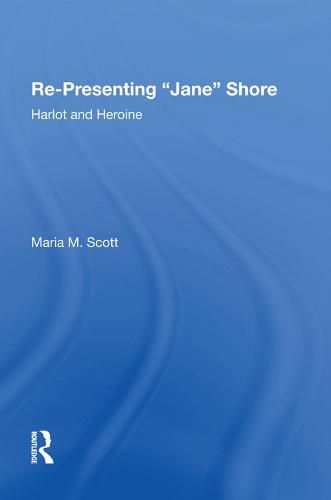Readings Newsletter
Become a Readings Member to make your shopping experience even easier.
Sign in or sign up for free!
You’re not far away from qualifying for FREE standard shipping within Australia
You’ve qualified for FREE standard shipping within Australia
The cart is loading…






Re-Presenting ‘Jane’ Shore analyzes the representation of the mistress of Edward IV of England, known to us as ‘Jane’ Shore (c. 1445-c. 1527). The daughter of a well-to-do merchant, she left her merchant husband to become the king’s concubine. After Edward’s death, his brother, later Richard III, charged her with witchcraft and harlotry, prompting Thomas More to include her in his exposition of Richard’s perfidies in The History of Richard III. Since then, Jane Shore has been a frequent subject of, among others, poets (Thomas Churchyard and Thomas Deloney), playwrights (Shakespeare and Nicholas Rowe), and novelists (Guy Padget and Jean Plaidy). Scott examines the anxiety in Anglo-American culture generated when sex and politics intersect, using the case of ‘Jane’ Shore to show how history is compromised and complicated by context. In doing so, she reveals how women continue to be deployed as symbols rather than as actors on the larger stage of the drama that is politics.
$9.00 standard shipping within Australia
FREE standard shipping within Australia for orders over $100.00
Express & International shipping calculated at checkout
Re-Presenting ‘Jane’ Shore analyzes the representation of the mistress of Edward IV of England, known to us as ‘Jane’ Shore (c. 1445-c. 1527). The daughter of a well-to-do merchant, she left her merchant husband to become the king’s concubine. After Edward’s death, his brother, later Richard III, charged her with witchcraft and harlotry, prompting Thomas More to include her in his exposition of Richard’s perfidies in The History of Richard III. Since then, Jane Shore has been a frequent subject of, among others, poets (Thomas Churchyard and Thomas Deloney), playwrights (Shakespeare and Nicholas Rowe), and novelists (Guy Padget and Jean Plaidy). Scott examines the anxiety in Anglo-American culture generated when sex and politics intersect, using the case of ‘Jane’ Shore to show how history is compromised and complicated by context. In doing so, she reveals how women continue to be deployed as symbols rather than as actors on the larger stage of the drama that is politics.